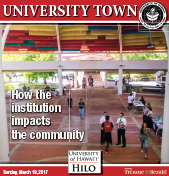Modest H-1B visa overhaul is worthy of tech support
A new bipartisan plan for reforming the H-1B visa program holds out modest hope that 2018 will be better than its predecessor for the tech industry.
It isn’t the fundamental, comprehensive legislation that California Rep. Zoe Lofgren has sought for years. But the bill by Rep. Darrell Issa, a California Republican, would make some welcome improvements.
It will help level the playing field for tech firms, from startups to the likes of Apple and Google, which have an increasingly difficult time attracting skilled workers in a tight labor market.
Issa’s legislation has passed the House Judiciary Committee. Congress should pass it quickly to avoid any political silliness in this congressional election year.
The H-1B program is a temporary U.S. visa designed to allow companies to hire highly skilled foreign professionals in positions for which there is a shortage of qualified American workers.
The program is critically important in places such as the Bay Area. A 2017 report by the Silicon Valley Leadership Group revealed that an estimated 57 out of every 100 jobs in the region requiring a bachelor’s degree or more is filled by someone who was not born in the United States, including an estimated 25,000 H-1B holders.
Unfortunately, some outsourcing companies hiring workers for jobs in the United States use loopholes in the law to snag thousands of the limited number of visas. They then hire foreign workers at lower pay, often at the expense of U.S. workers.
Tech companies hiring directly through H-1B visas also have abused the program. It’s shameful because without a thriving H-1B program, the U.S. risks losing future brilliant immigrant leaders such as Tesla CEO Elon Musk, Google co-founder Sergey Brin and Google CEO Sundar Pichai, who all were born elsewhere.
President Donald Trump claims he wants to accept only the best and brightest as immigrants — but his latest harebrained notion is to prevent any further extensions for current H-1B visa holders. It risks sending the most brilliant foreign workers home just as their ideas and work are developing to spark the next wave of innovation. Fortunately, this is not part of the Issa bill.
Issa’s legislation, which Lofgren and the Leadership Group support, increases the minimum salary requirement for H1-B visas holders from $60,000 to $90,000 a year and directly forbids employers from replacing American workers with foreign workers.
It also redefines an “H-1B dependent company” — those required to prove they tried to hire domestic workers — in a way that Issa says will give smaller U.S.-based companies “a better chance to get the H-1B employee they want.”
Issa’s bill does not address some of the most fundamental problems of the program, including limiting visas by country, regardless of where qualified workers reside, and solving how H-1B visas are prioritized.
But any step in the right direction is promising.
— The Mercury News
Rules for posting comments
Comments posted below are from readers. In no way do they represent the view of Oahu Publishing Inc. or this newspaper. This is a public forum.
Comments may be monitored for inappropriate content but the newspaper is under no obligation to do so. Comment posters are solely responsible under the Communications Decency Act for comments posted on this Web site. Oahu Publishing Inc. is not liable for messages from third parties.
IP and email addresses of persons who post are not treated as confidential records and will be disclosed in response to valid legal process.
Do not post:
- Potentially libelous statements or damaging innuendo.
- Obscene, explicit, or racist language.
- Copyrighted materials of any sort without the express permission of the copyright holder.
- Personal attacks, insults or threats.
- The use of another person's real name to disguise your identity.
- Comments unrelated to the story.
If you believe that a commenter has not followed these guidelines, please click the FLAG icon below the comment.















